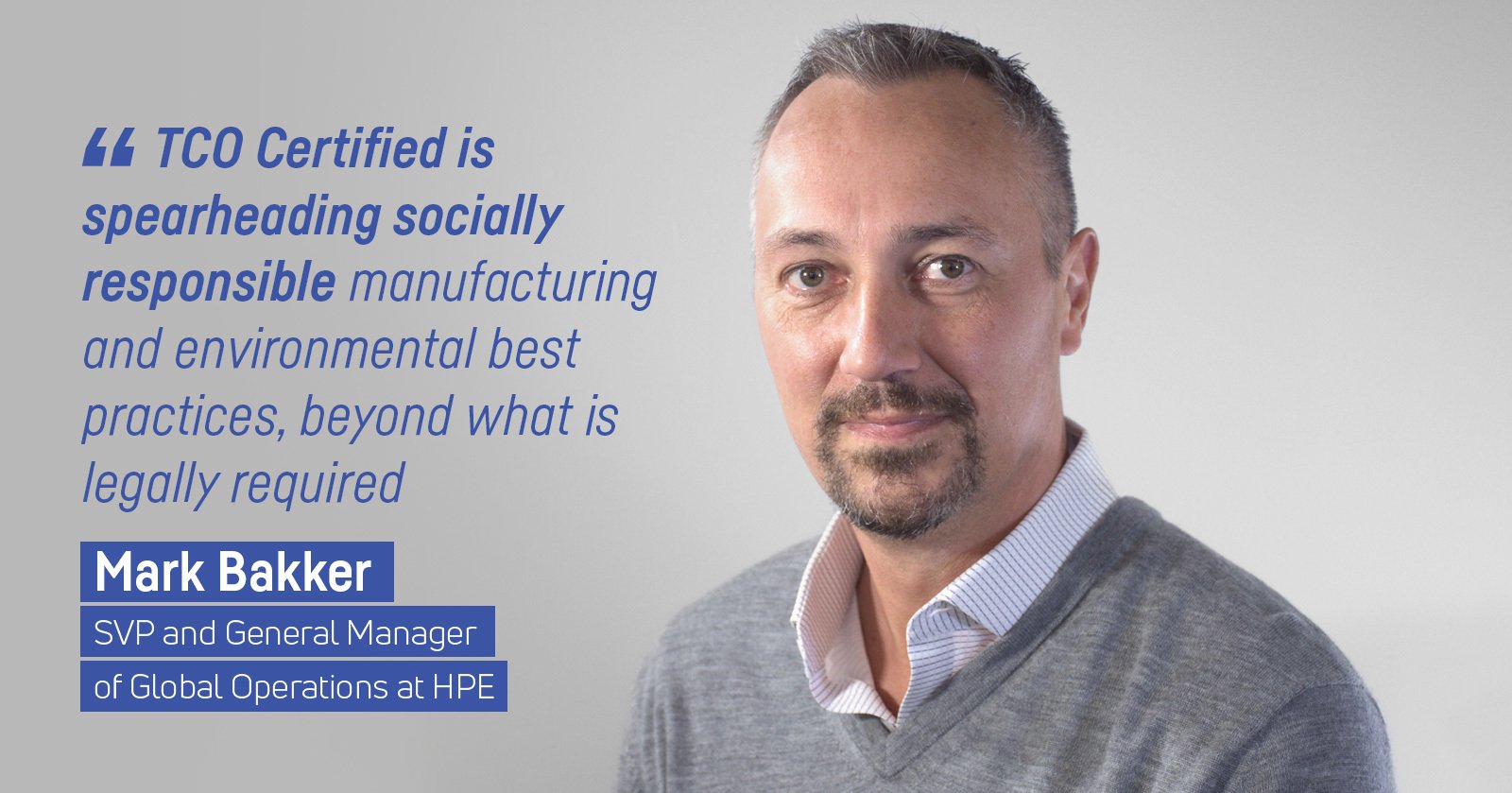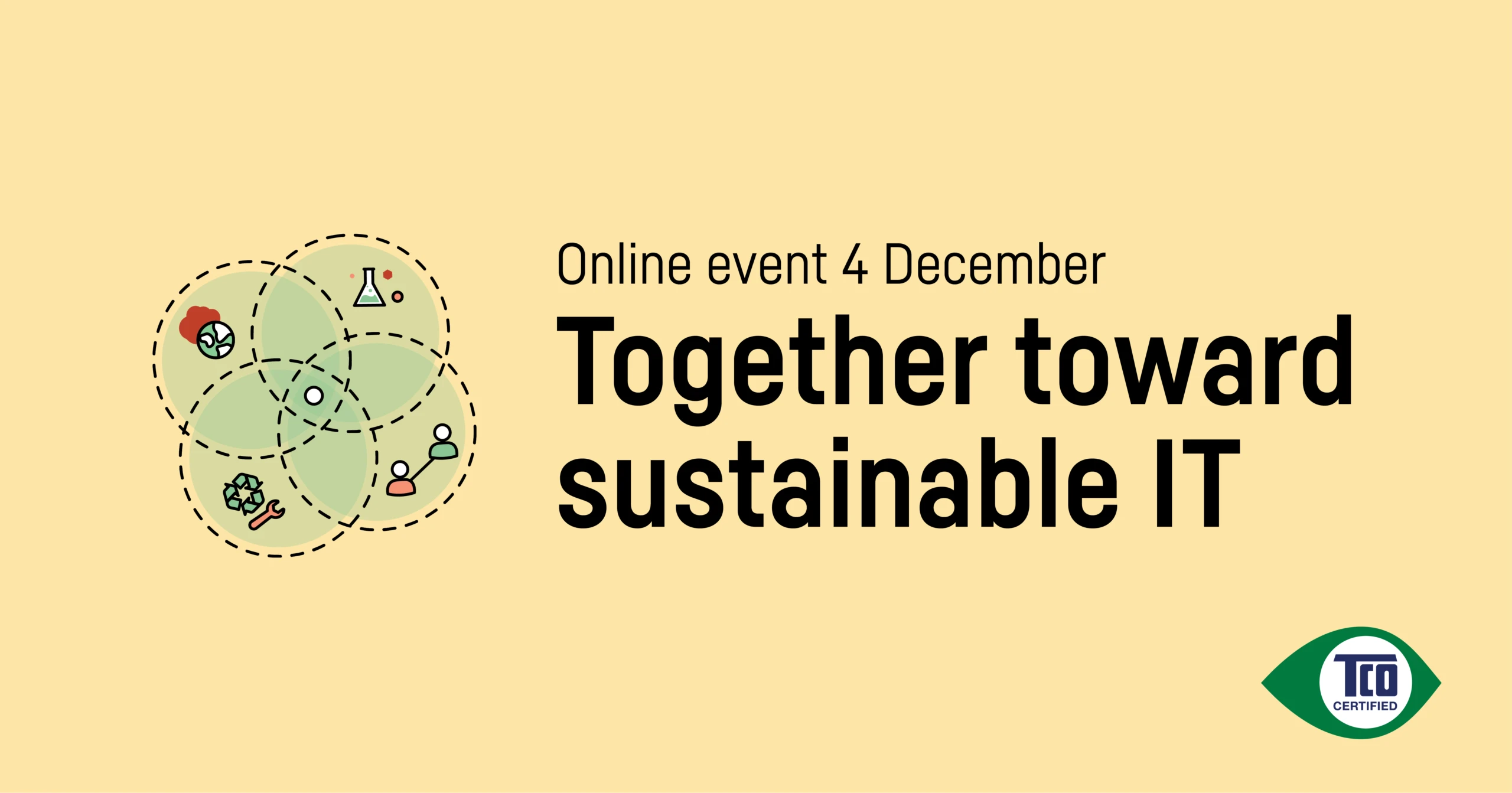Hewlett Packard Enterprise (HPE) has taken the lead with the first servers certified according to the comprehensive sustainability criteria in TCO Certified. We have talked to Mark Bakker, SVP and General Manager of Global Operations at HPE about their decision to apply for TCO Certified, their road forward and the future of Sustainable IT.
Can you tell us a little about HPE
Hewlett Packard Enterprise (HPE) is the global edge-to-cloud platform as-a-service company that helps organizations accelerate outcomes by unlocking value from all of their data, everywhere. Our solutions are built on decades of reimagining the future and innovating to advance the way people live and work. Among our core businesses are our compute and storage solutions.
What made you consider TCO Certified?
We have a history of leadership in reducing the environmental impact of our products, dating back to our Design for Environment program which launched in 1992 and has evolved ever-since. The TCO Certified verification process was an opportunity to have both our products and our supply chain program evaluated by a third party. Although we believed that our approach to product lifecycle management already met the majority of the TCO Certified requirements, the certification process was an opportunity to take a closer look at certain aspects. It also helped us to fine tune some of our practices.
What are the benefits of TCO Certified for HPE?
TCO Certified is spearheading socially responsible manufacturing and environmental best practices, beyond what is legally required. Many of our customers share these ambitions. Our customers are increasingly asking about our sustainability credentials, recognizing that sustainable product design delivers benefits such as lower power consumption, reduced waste, and improved total cost of ownership.
As an independent and credible certification, TCO Certified offers our customers the assurances they need to make informed purchasing decisions.
What do you think is the future of sustainable IT?
HPE is focused on delivering innovative IT solutions that transform our customers’ infrastructure to minimize their environmental impacts, optimize performance, and reduce costs. Given that the majority of our environmental footprint results from the electricity consumed during customers’ use of our products, we are focused on increasing our product energy performance with every new generation, including a goal to increase the energy performance of our product portfolio to 30-times our 2015 baseline by 2025.
I believe the pandemic has confirmed that digital transformation is no longer just a priority for companies, it’s an imperative. While the expansion of technology is improving livelihoods and driving productivity, we can’t ignore one of the fundamental issues: this rapid growth of the digital universe and its energy consumption is contributing to climate change and environmental degradation. The IT infrastructure of the future will need to be grounded in next-generation technologies, such as photonics and silicon design, that can dramatically accelerate processing while using a fraction of the energy and resources than current computer technologies. The future of sustainable IT will be to find ways to continue the decoupling between exponential data growth and environmental impact.

Cassandra is our Global PR and Communication Manager and has more than 10 years of experience of driving sustainable change through communication and external relations building. She has won the Swedish national rugby championship several times, and climbed both Mount Fuji and Mount Kilimanjaro.




